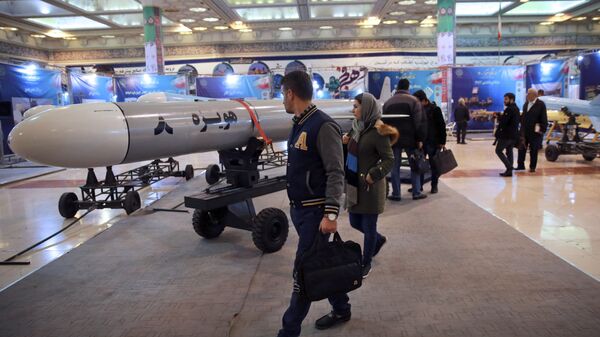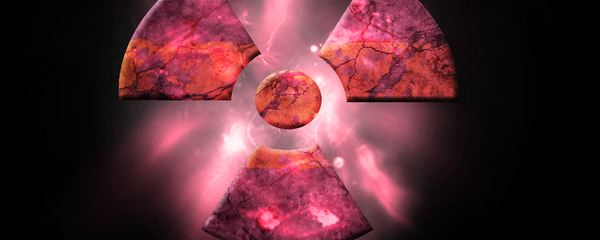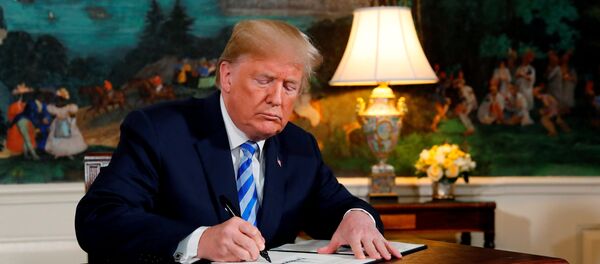Radio Sputnik discussed the inquiry into the Trump administration's plan to sell nuclear technology to Saudi Arabia with Tom Sauer, a professor in international politics at the University of Antwerp, Belgium.
Sputnik: What's your take on the Trump administration plan to build nuclear reactors in Saudi Arabia? How feasible is it? Do you think it could really be delivered?
Tom Sauer: It's feasible but it's very bizarre, being that the country that sits on the largest oil and gas reserves now wants to build nuclear reactors for nuclear energy. By the way, the same bizarre logic applies to the regional rival Iran. Unless you know, it was Russia that finished the nuclear reactor in Bushehr, Iran some time ago and now the Americans want to do the same in Saudi Arabia.
READ MORE: US Exit From Iran Deal May Fuel Nuclear Arms Race in Middle East — Ex-EU Aide
Of course, the nuclear industry in the United States, which is in deep trouble, sees it as a business opportunity and there are rumours that Saudi Arabia wants dozens, some speak of 40 nuclear reactors being built. That will be, of course, a very lucrative investment and jobs, jobs mean it's a priority for Trump.
Now the problem is that there are laws and international rules to try to contain the spread of nuclear material and nuclear knowledge in order to prevent nuclear proliferation, the spread of nuclear weapons and in the US case we're talking about the US Atomic Energy Act of 1954 and in particular, Section 123, that specifies conditions for the export of sensitive material. However, the Trump administration apparently was trying to circumvent these laws, which is, of course, by definition, illegal.
Tom Sauer: As I already said, there are benefits for the US nuclear industry, the American economy and in addition to that, apparently, and that's something that requires further investigation, some people in the White House have personal links to the nuclear consortium called IP3. And if personal interests with financial interests that are at stake, and here were talking about Michael Flynn, the former National Security Advisor and Jared Kushner, the son in law of Mr. Trump, and that's, of course, is not very healthy, and here we have national interests global interests, security interests that are in balance or not in balance with parochial interests even personal interests.
Tom Sauer: Of course, the US lawmakers are rightly concerned, this is of course also a domestic issue and with Democrats now in power in the House (of Representatives) since recently it's clear that they want to enhance their control on Trump's foreign policy, and it remains to be seen whether the Republicans will follow their colleagues or will continue to support the president on the issue.
Now there is indeed a real danger of an arms race, a nuclear arms race in the region, a region that is already unstable — the Middle East, and for the moment only Israel possesses nuclear weapons in the region. Iran does to a certain extent and still is a concern, ironically, because Mr. Trump has unilaterally withdrawn from the Iran deal and as a result the Iranian economy is going down and more and more voices in Iran saying that they should get rid of the constraints of the deal which means having less constrains on a possible secret nuclear weapons program again.
Now if Saudi Arabia acquires a civil nuclear infrastructure, the pressure on Iran goes up further, and that's, of course, very dangerous.
READ MORE: Push to Transfer Nuclear Tech to Saudi Arabia Fueled by ‘Greed' — Watchdog
Sputnik: Do you feel that there's a possibility to track down the development of nuclear weapons by Saudi Arabia should transfer of technology happen?
Tom Sauer: In principle yes, there's nuclear forensics, a lot is possible, but in that case it would be too late, just as we can only notice that countries like North Korea, India, Pakistan have acquired nuclear weapons in the past. They also received support from abroad, and by the way, Pakistan's nuclear weapons program was heavily financed by Saudi Arabia, according to US intelligence sources, and there are rumors that if Iran gets the bomb Saudi Arabia will be able to get nuclear weapons from Pakistan, maybe under the sharing arrangement similar to that of NATO.
The views and opinions expressed by the expert do not necessarily reflect those of Sputnik.





